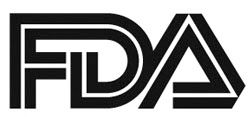FDA Grants Orphan Drug Designation to CD123-Targeted CAR T-cell Therapy for AML
The FDA has granted an orphan drug designation to MB-102, a CD123-directed CAR T-cell therapy, for the treatment of patients with acute myeloid leukemia.

The FDA has granted an orphan drug designation to MB-102, a CD123-directed chimeric antigen receptor (CAR) T-cell therapy, for the treatment of patients with acute myeloid leukemia (AML).
This marks the second orphan drug designation for the CAR T-cell product, the first being for the treatment of patients with blastic plasmacytoid dendritic cell neoplasm (BPDCN).
“We are pleased that MB-102 has received Orphan Drug Designation in 2 indications, AML and BPDCN. AML most commonly occurs in senior adults, many of whom have to forgo chemotherapy due to other health conditions. MB-102 has the potential to be an important new treatment for these and other patients, and to potentially address multiple areas of high unmet medical need,” Manuel Litchman, MD, the president and CEO of the company developing MB-102, Mustang Bio, said in a press release. “We expect to initiate a multicenter phase I/II clinical trial in patients with AML, BPDCN, and high-risk myelodysplastic syndrome in the coming months.”
An FDA orphan drug designation allows for agency assistance in the clinical trial design and additional developmental incentives. The designation is granted to drugs that are intended to treat rare diseases affecting fewer than 200,000 people in the United States.
The cellular immunotherapy consists of genetically modified ex vivo expanded T cells that include a self-inactivating lentiviral vector to express a co-stimulatory (with CD28) CD123-specific CAR as well as a truncated EGFR. CD123 is widely expressed in many hematologic malignancies, including AML and BPDCN.
The designation for the CAR T-cell therapy is supported by initial results of an ongoing first-in-human phase I dose-escalation trial of MB-102 in patients with relapsed or refractory AML in the first cohort and persistent or recurrent BPDCN in the second cohort (NCT02159495). In the trial, patients with AML and BPDCN have already demonstrated complete responses when treated with low doses of MB-102 without the observance of dose-limiting toxicities.
The dose-escalation trial, which is being run through the City of Hope Medical Center, is looking to enroll about 42 patients to determine the safety, efficacy, and optimal phase II dose of the cellular immunotherapy in patients with CD123-positive disease.
Patients in the trial will receive lymphodepleting chemotherapy of cyclophosphamide and/or fludarabine phosphate followed by infusion of autologous or allogeneic CD123-positive CAR T cells. The lymphodepleting regimen is given 3 to 10 days prior to infusion, and the CAR T cells are administered intravenously over 15 minutes.
Those who still have evidence of disease past day 28, continued expression of CD123, and no dose-limiting toxicities are able to receive a second infusion of MB-102.
The primary endpoints of the trial are dose-limiting toxicities, safety, and disease response. Secondary endpoints include engraftment of transferred CD123-positive CAR T cells, CAR123-specific antibody level, duration of response, progression-free survival, and overall survival.
References:
- Mustang Bio Receives Orphan Drug Designation for MB-102 (CD123 CAR T) for the Treatment of Acute Myeloid Leukemia [press release]. New York: Mustang Bio, Inc; July 24, 2019. https://bit.ly/2Mapoms. Accessed July 24, 2019.